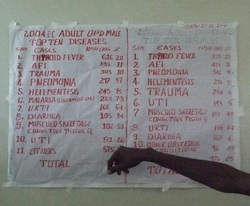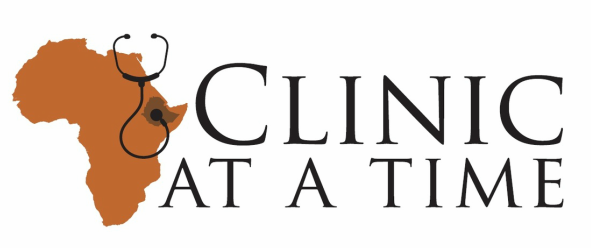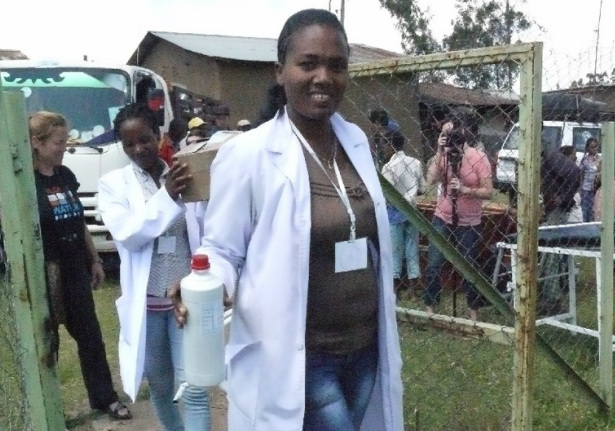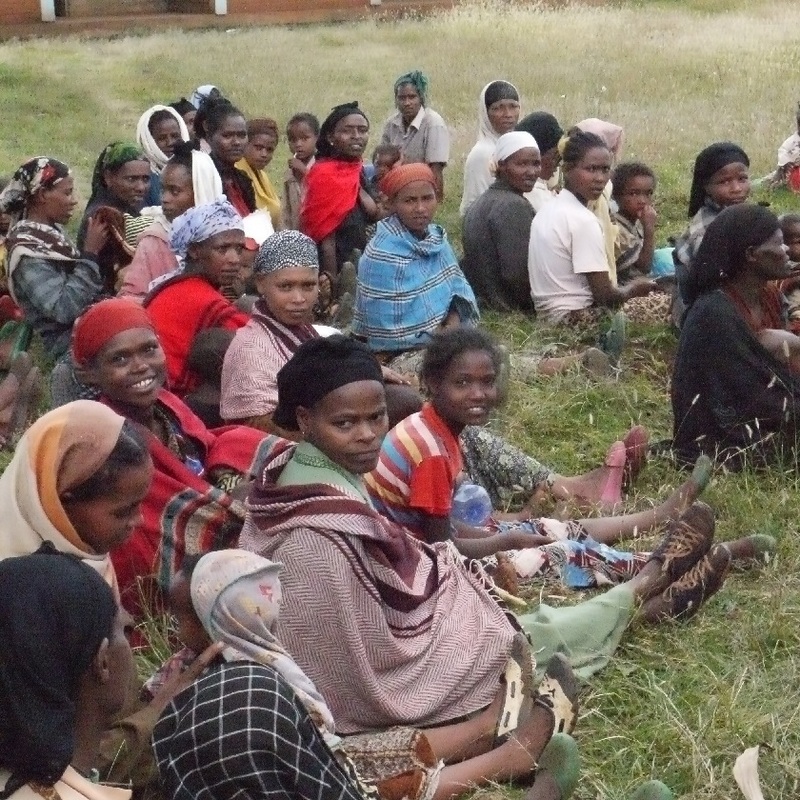
What's better than delivering presents? Delivering medical supplies in Kembata-Tembaro region with Mudula Water and Clinic At A Time!
I had the honor of representing Clinic At A Time on a recent medical supplies delivery mission with Liz McGovern, Cien Kelty-Lucas, and a crew from Washington state including Molly Pitts and family. After raising funds and collecting medical supplies for months state-side (thanks to the many donors who sent money, donated equipment, and bought new items on Amazon!), Liz bought meds and beds in Addis, shelves in Hosanna, and we packed up a large truck and set off to visit four clinics down in the KT region to bring much-needed equipment and medications to rural health centers in Ambikuna, Serrera, Amata-Wacho, and Mudula.
As we pulled up at the first center in Ambikuna, a large crowd gathered (as usual in rural Ethiopia) and a little chaos ensued since it was lunchtime and most of the staff was gone. Eventually, some of the nurses and health officers arrived and we unloaded the beds, put them together and all helped carry the equipment through the gates and to the storage area. Since it took some time to inventory the supplies we brought (which had to be done at each health center), I got an opportunity to get a tour of the health center with a couple of the nurses. Like the other health centers we visited, the place was a gated compound made up of several buildings. There was a check-in window at one building, and several spare, concrete examination and treatment rooms. I saw the labor and delivery room (which were were luckily furnishing with a new bed), the safe abortion room, the family planning room, emergency room and some other consultation rooms. The chart outlined the top 10 medical conditions seen at the clinic in the past year. I was especially impressed with the family planning center there where all birth control options were displayed on a cardboard panel. Another highlight of the first delivery was seeing tears of joy come to the lab tech's eyes when she saw the new microscope we brought (and the book on tropical disease microbiology). At every clinic we visited, all of the nurses and health officers gathered to see what we had brought and were grateful that Liz and Meghan had kept their promise to help out these centers with much-needed medical supplies.
We continued the deliveries that day at three other health centers. One was just down the road and the other two were quite a drive away. Most of the centers were pretty empty in terms of patients besides the clinic in Mudula, where they were doing vaccines and HIV tests. It was great to see the community gathered to receive preventative care. I was also happy to share an otoscope/opthalmascope donated by one of my clients with the health officer at Mudula clinic.
The medical supply delivery was an amazing success and was a great opportunity to see first-hand how limited healthcare access is in rural Ethiopia. We also spent some time during the week visiting larger hospitals and health centers in the region to find referral sources for the Mudula Water midwives (who will be graduating and serving the KT region after 4 years). It was shocking to see learn how few physicians (if any) are working in these rural areas. At one health center, a young doc on staff let us know that most cesarean sections were performed by a health officer since they had no other option. At most of the small health centers where we delivered supplies, doctors were unavailable and c-sections were not an option. An article on PRI's the world recently stated that 85% of rural Ethiopians will never see a doctor in their lifetime. There is a recent push to train more doctors and open more medical schools, but some doubt the quality of the education and care since so many well-trained and experienced physicians leave the rural areas for the cities or even to go abroad. Hopefully, we'll see an improvement in terms of the care available in rural Ethiopia as more docs graduate and serve these areas.
For now, it's great to know that at least a few health centers have new delivery beds, new shelves, and some much needed equipment and supplies to serve the patients in Kembata-Tembaro. Thanks to Clinic At A Time and Mudula Water for making a commitment to bettering the lives of so many people in Kembata-Tembaro region. I can vouch for the difference this medical supply drive has made for the people we met. Their smiles said it all!
I had the honor of representing Clinic At A Time on a recent medical supplies delivery mission with Liz McGovern, Cien Kelty-Lucas, and a crew from Washington state including Molly Pitts and family. After raising funds and collecting medical supplies for months state-side (thanks to the many donors who sent money, donated equipment, and bought new items on Amazon!), Liz bought meds and beds in Addis, shelves in Hosanna, and we packed up a large truck and set off to visit four clinics down in the KT region to bring much-needed equipment and medications to rural health centers in Ambikuna, Serrera, Amata-Wacho, and Mudula.
As we pulled up at the first center in Ambikuna, a large crowd gathered (as usual in rural Ethiopia) and a little chaos ensued since it was lunchtime and most of the staff was gone. Eventually, some of the nurses and health officers arrived and we unloaded the beds, put them together and all helped carry the equipment through the gates and to the storage area. Since it took some time to inventory the supplies we brought (which had to be done at each health center), I got an opportunity to get a tour of the health center with a couple of the nurses. Like the other health centers we visited, the place was a gated compound made up of several buildings. There was a check-in window at one building, and several spare, concrete examination and treatment rooms. I saw the labor and delivery room (which were were luckily furnishing with a new bed), the safe abortion room, the family planning room, emergency room and some other consultation rooms. The chart outlined the top 10 medical conditions seen at the clinic in the past year. I was especially impressed with the family planning center there where all birth control options were displayed on a cardboard panel. Another highlight of the first delivery was seeing tears of joy come to the lab tech's eyes when she saw the new microscope we brought (and the book on tropical disease microbiology). At every clinic we visited, all of the nurses and health officers gathered to see what we had brought and were grateful that Liz and Meghan had kept their promise to help out these centers with much-needed medical supplies.
We continued the deliveries that day at three other health centers. One was just down the road and the other two were quite a drive away. Most of the centers were pretty empty in terms of patients besides the clinic in Mudula, where they were doing vaccines and HIV tests. It was great to see the community gathered to receive preventative care. I was also happy to share an otoscope/opthalmascope donated by one of my clients with the health officer at Mudula clinic.
The medical supply delivery was an amazing success and was a great opportunity to see first-hand how limited healthcare access is in rural Ethiopia. We also spent some time during the week visiting larger hospitals and health centers in the region to find referral sources for the Mudula Water midwives (who will be graduating and serving the KT region after 4 years). It was shocking to see learn how few physicians (if any) are working in these rural areas. At one health center, a young doc on staff let us know that most cesarean sections were performed by a health officer since they had no other option. At most of the small health centers where we delivered supplies, doctors were unavailable and c-sections were not an option. An article on PRI's the world recently stated that 85% of rural Ethiopians will never see a doctor in their lifetime. There is a recent push to train more doctors and open more medical schools, but some doubt the quality of the education and care since so many well-trained and experienced physicians leave the rural areas for the cities or even to go abroad. Hopefully, we'll see an improvement in terms of the care available in rural Ethiopia as more docs graduate and serve these areas.
For now, it's great to know that at least a few health centers have new delivery beds, new shelves, and some much needed equipment and supplies to serve the patients in Kembata-Tembaro. Thanks to Clinic At A Time and Mudula Water for making a commitment to bettering the lives of so many people in Kembata-Tembaro region. I can vouch for the difference this medical supply drive has made for the people we met. Their smiles said it all!



 RSS Feed
RSS Feed